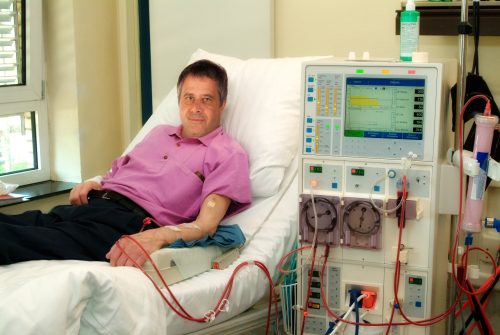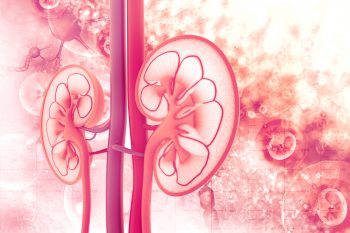
2021 ANNA National Symposium
Treatment options for patients with late stage chronic kidney disease (CKD) have traditionally focused on prolonging life with dialysis-based therapies. Over the past 20 years, there has been interest in the option of conservative care, excluding dialysis therapies, to delay disease progression and minimize complication. Decisions regarding conservative care are commonly made early in the trajectory of CKD. There are few data available on the actual treatment provided for patients who opt for conservative care when they reach end-stage kidney disease (ESKD).
Candice Halinski, MBA, MHCDS, MSN, NP-C, conducted a chart review of male and female patients participating in a care management program for patients with late stage CKD (stages 4 and 5). Results of the review were reported during a virtual poster session at the 2021 ANNA National Symposium in a poster titled Decisions Surrounding Conservative Care Are Not Absolute.
The program is located in the northeast region of the United States. All patients included in the chart review opted for conservative care, defined as active medical management without dialysis, as a treatment option for late-stage CKD and ESKD. The review included 71 patients who participated in the program from April 9, 2014, to the present. The chart review aimed to identify patients’ final treatment pathways.
Of the 71 patients who confirmed the decision to forego dialysis, nine initiated hemodialysis and one has documented the desire to pursue treatment if necessary (14% conversion rate). Of the patients who opted to initiate hemodialysis, all were >75 years of age: 67% were 75 to 85 years of age and 33% were 86 to 95 years of age, 60% were female, 50% were White, 30% were Black, and 20% were other or multi-racial. Eighty-nine percent initiated treatment in the in-patient setting.
In summary, Ms. Halinski said, “Active medical management without dialysis or conservative care has become widely recognized by professional organizations and societies as a valid treatment pathway, yet no formalized approaches exist to support such treatment. The choice to forego renal replacement therapies is complex. When decisions surrounding the reversal of conservative management are made, the nephrology team should consider how conversations surrounding treatment options, goals, and quality of life can serve to honor a patient’s wishes. This is especially important in cases that are acute in origin.
“Formalized treatment pathways, organizational communication campaigns, and education programs surrounding medical management in late stage chronic kidney disease may serve to empower the patient and support the provider in facilitating the decision to forego renal replacement therapies. Further research should focus on the psychosocial dynamics that surround medical treatment decisions and the supportive structure required to uphold medical management without dialysis.”
Source: Halinski C. Decisions surrounding conservative care are not absolute. Abstract of a poster presented at the virtual 2021 American Nephrology Nurses Association National Symposium, May 2-5, 2021.







 © 2025 Mashup Media, LLC, a Formedics Property. All Rights Reserved.
© 2025 Mashup Media, LLC, a Formedics Property. All Rights Reserved.